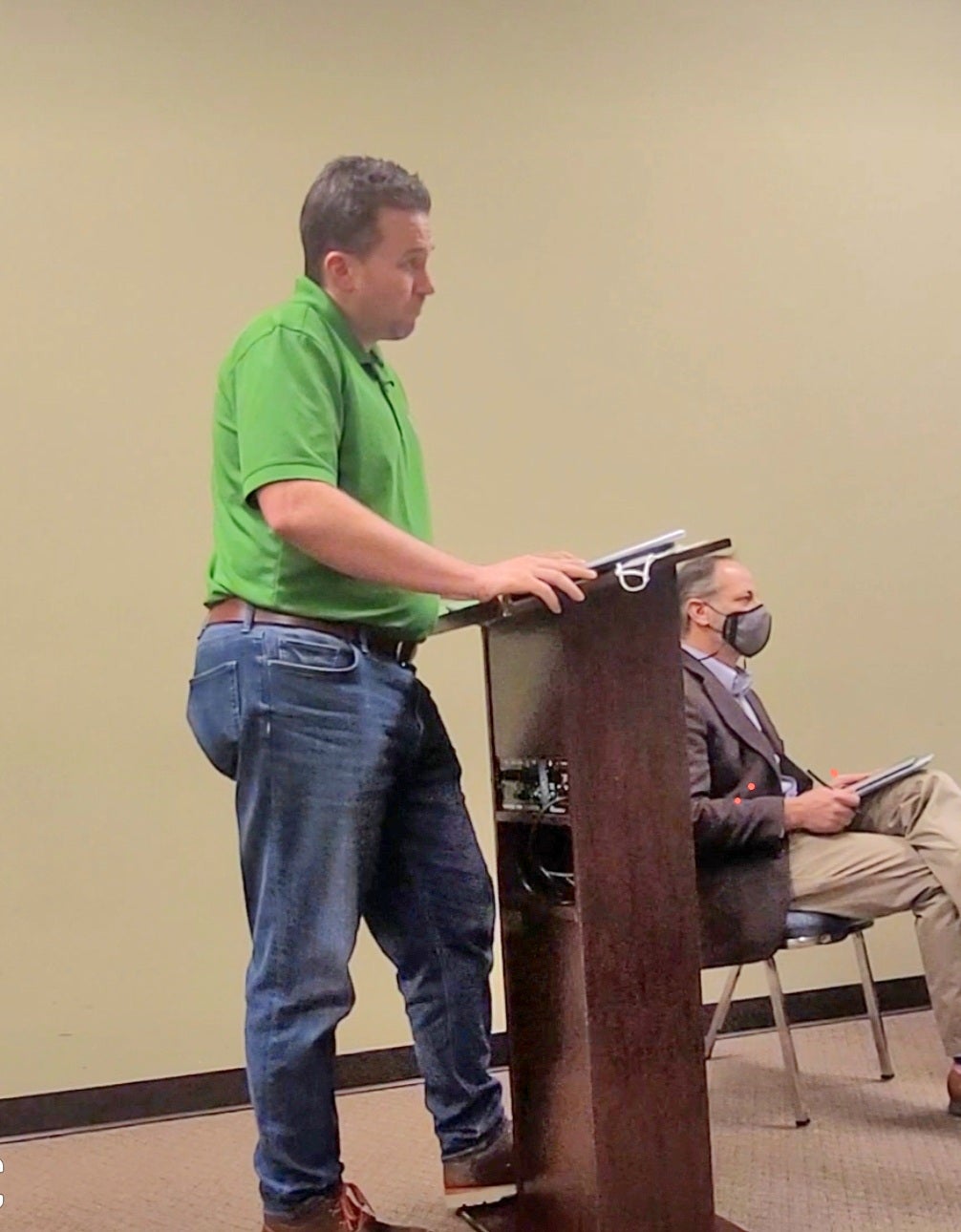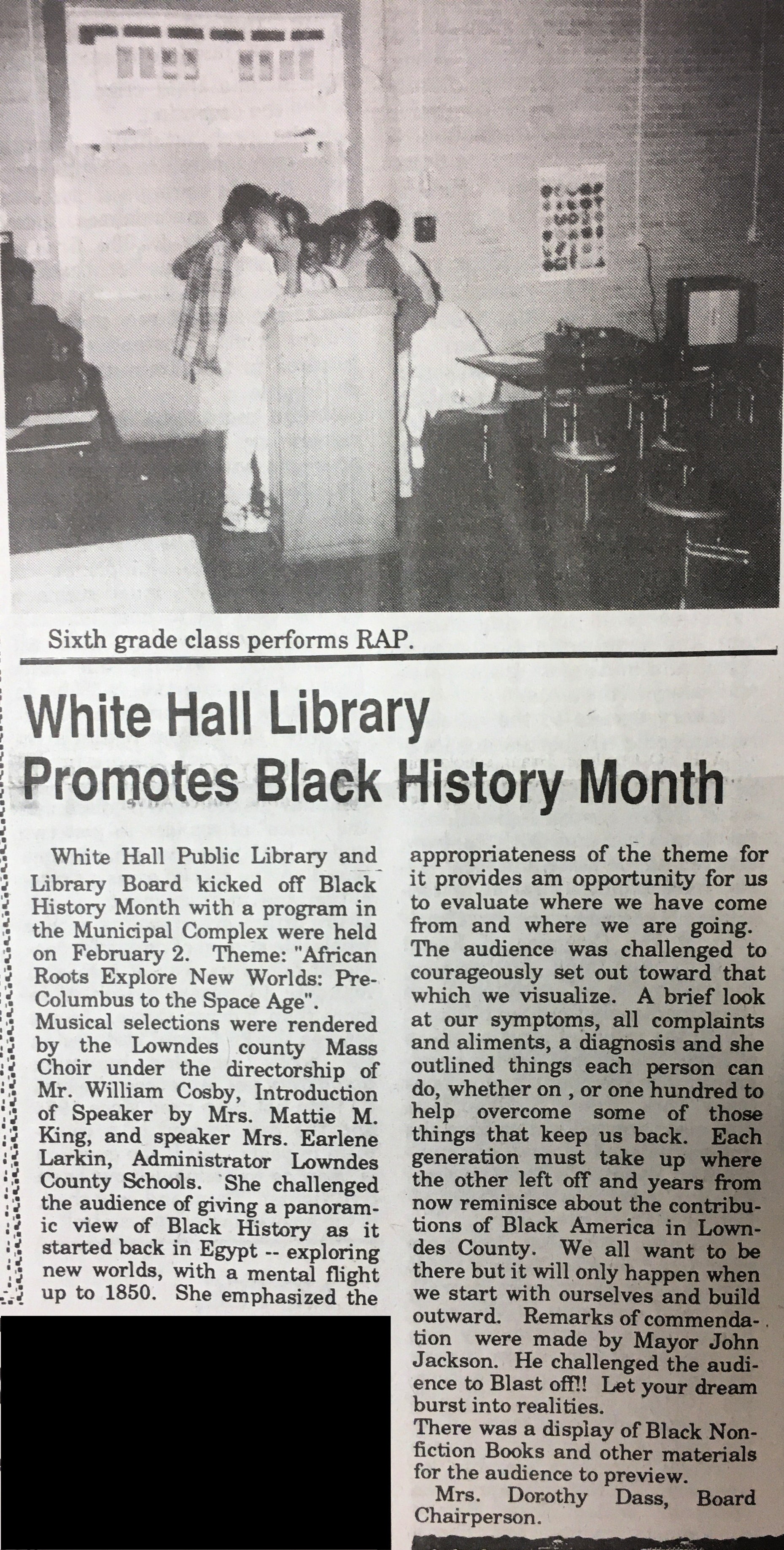No positive results for hookworms, Sewell working with ADPH officials on Lowndes issues
Published 10:31 pm Thursday, February 22, 2018
|
Getting your Trinity Audio player ready...
|
By Fred Guarino
Congresswoman Terri A. Sewell and state health officials addressed water and sewer issues as well as the question of hookworms in Lowndes County and what can be done to make them better at a Congress in your Community Town Hall Meeting held at the Lowndes County Water Authority building Thursday, Feb. 22.
Sewell was joined by Sherry Bradley, director of the Alabama Department of Public Health (ADPH) Bureau of Environmental Services; Dr. Mary G. McIntyre, acting State Epidemiologist and Assistant State Health Officer for Disease Control and Prevention ADPH; Dr. Scott Harris, State Health Officer ADPH; and Dr. Charlene Siza, an epidemiologist assigned to Alabama by the Center for Disease Control.
Sewell told those on hand for the Town Hall Meeting, “There is not a week that goes by” that she doesn’t “get a call about hookworms in Lowndes County.” Hookworms are defined as parasitic nematodes that inhabit the intestines of humans.
While Sewell said she wanted to understand if there is a hookworm problem, she said she knows the county has a sanitation problem and water/sewer issues that need to be addressed.
She stressed that toward that end, the Health Department is not going to arrest anyone nor fine people, but will be looking for answers.
Sewell said the reality is not everybody has septic tanks, not everybody has properly controlled sewer systems. And she said, “We also know that some septic tanks were not put in correctly.”
“Is there a hookworm problem in Lowndes County? The reality is that we don’t know,” Dr. McIntyre said.
McIntyre said the Baylor study info that was all over the Internet and national media was based on a study that the Alabama Department of Public Health worked with Baylor to develop. But she said the instrument that was used was not Food and Drug Administration (FDA) approved, but experimental.
Also, when submitted to the Center for Disease Control for testing, she said, “Not a single specimen came back positive that was positive based on the testing done by Baylor.”
She said even Baylor noted the results “did not meet statistical significance.”
But McIntyre said the take home from the media was, “There’s endemic disease in Lowndes County.”
McIntyre went on to describe a plan by ADPH to work with the Lowndes County Community.
She said, after going out in the county and looking at sanitation issues and systems, “We know that even if disease is not there now that the circumstances are at that point where they could be there.”
Dr. Siza followed up McIntyre saying that with sewage and water issues, certain diseases are expected to be seen. She said the number of reported illnesses from all counties in Alabama were looked at to see if there was a spike in Lowndes County based on population. However, she said, “We didn’t really see anything remarkable as far as Lowndes County… Lowndes County was actually in the middle of all 67 counties.”
Siza also said Lowndes County has not had a gastrointestinal outbreak in the past three years.
But she said, “There is definitely the potential.”
McIntyre said that in order to get answers a community assessment will made using recognized tools, surveys with people going out into the community to houses. But she said collaboration is going to be required. “We can only go as far as you all let us,” she said.
McIntyre said if the community will allow a study and testing can be done, the hookworm question can be answered.
Regarding Septic tanks issues in Lowndes County, Bradley asked everyone to call the local Health Department before a house is erected or a trailer is put on a piece of property. She said that is because, “Not all land is usable.” However, she stressed, people will not be arrested because such violations are a “misdemeanor.”
Bradley also went on to say she is working with Lowndes community leader Perman Hardy on public outreach regarding the community assessment mentioned by McIntyre.
Bradley also went on to reported on the case of Willie Mae Spivey, who she said bought a home in 1979 at which a septic tank was installed by an installer with no field lines and a straight pipe was run.
She said, “Yes there (are) some problems.” And what will work in such cases, she said, is something called a “community cluster system.” While she said everyone can’t get on a community system, and there will always be septic tanks, she said a cluster system could cover a majority of a neighborhood.
Bradley said what is needed is the name of illegal installers. She said, “I don’t care if you are certified, if you don’t contact the Health Department and get your permit, it is still illegal.” But she said, “We don’t go after the homeowner. We go after the installer.”
Bradley said the Health Department partners with the Alabama On Site Wastewater Association. And in the case of Spivey, she reported that David Mastin of AZ Pumping is going to install a free system.
Bradley said other systems have also been given away, and said, “We do what we can.”
Sewell closed by saying, “Do know that you are not alone in this, that you have partners. You have state partners, you have local partners, you have county partners. We are here to help each other.”

Sewell seeks sewer/sanitation/hookworm answers for Lowndes
Congresswoman Terri A. Sewell and state health officials addressed water and sewer issues as well as the question of hookworms in Lowndes County and what can be done to make them better at a Congress in your Community Town Hall Meeting held at the Lowndes County Water Authority building Thursday, Feb. 22. Sewell, second from right, was joined from left by Sherry Bradley, director of the Alabama Department of Public Health (ADPH) Bureau of Environmental Services; Dr. Mary G. McIntyre, acting State Epidemiologist and Assistant State Health Officer for Disease Control and Prevention ADPH; Dr. Scott Harris, State Health Officer ADPH; and Dr. Charlene Siza, an epidemiologist assigned to Alabama by the Center for Disease Control. Fred Guarino/The Lowndes Signal.





